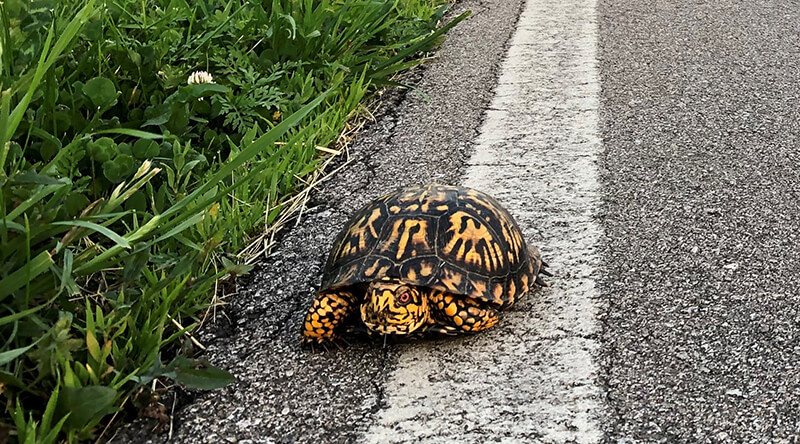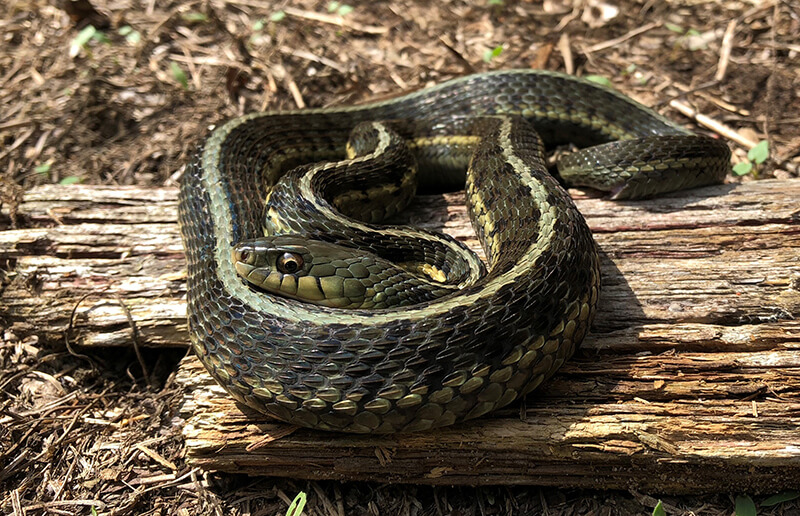
Eastern Box Turtle.
Turtles

Common gartersnake.

Eastern Box Turtle.
Some of Indiana’s amphibians and reptiles can be legally collected as pets according to Indiana’s Reptile & Amphibian Regulations.
Eastern and ornate box turtles are both protected species and cannot be collected from the wild. Box turtles can be moved off roadways but should be placed across the road in the direction the turtle is going. Learn more about eastern box turtles.
Sick or slightly injured box turtles should be left in the wild. Box turtles are surprisingly resilient to injury and disease. If left alone, they will more than likely heal on their own. If a box turtle appears severely injured, it can be given to a licensed rehabilitator or licensed veterinarian. You cannot possess an injured turtle for more than 24 hours to transport it to a licensed rehabilitator.
You can obtain the name(s) of licensed rehabilitators in your area by contacting one of the following:
Nesting turtles should be left alone because they can easily be scared away from their nesting sites. A mesh fence may be placed around a nest to protect eggs from predators. This enclosure should be checked daily to ensure that newly emerging turtles are not caught. Do not try to excavate a turtle nest on your own. Disturbing the position of turtle eggs may kill the turtle embryo. If you see a nest that is about to be destroyed because of new development, you may contact a local rehabilitator for assistance. A licensed rehabilitator can raise the young and release them back into the wild. Do not try to rescue the eggs or nest yourself. Unfortunately, it may not be possible to save every nest

Common gartersnake.
Yes. Among Indiana’s 32 species of snakes, four are venomous: the timber rattlesnake, eastern massasauga, copperhead, and cottonmouth (also known as the “water moccasin”). Only copperheads can be considered somewhat common and can be found in the forested hills of southern and west-central Indiana. The remaining three are rare and listed as state endangered species. The eastern massasauga is also listed as federally threatened.
For information on living with wildlife visit the living with wildlife web page. You can also call a licensed wildlife control operator to remove the snake from your property.